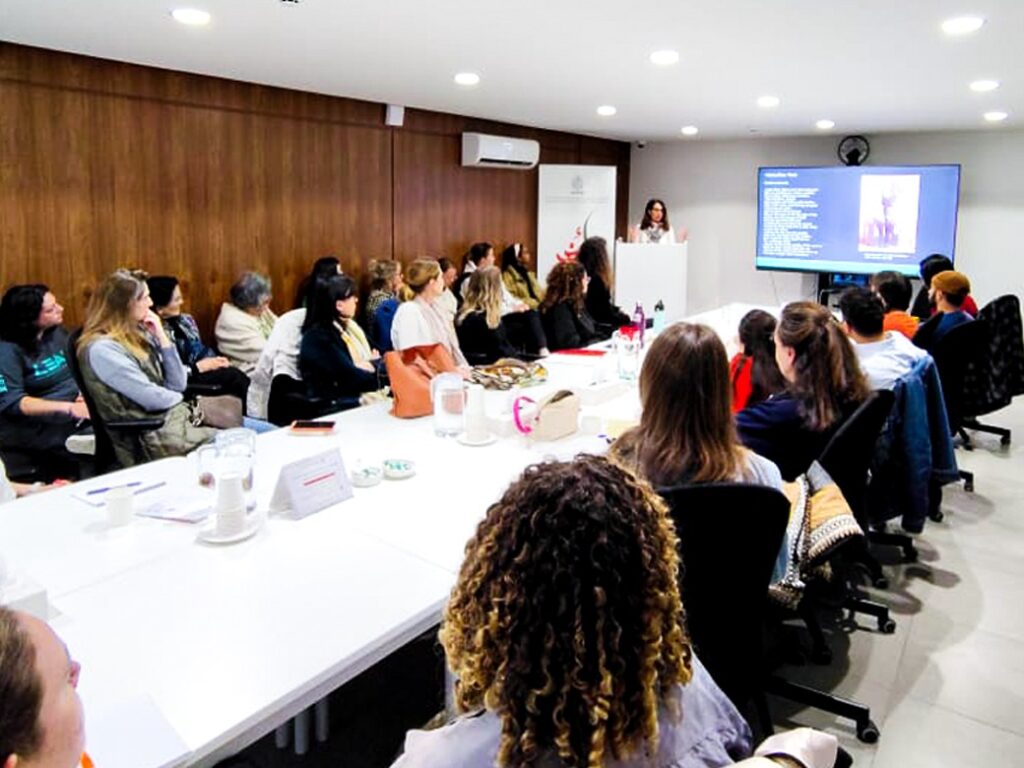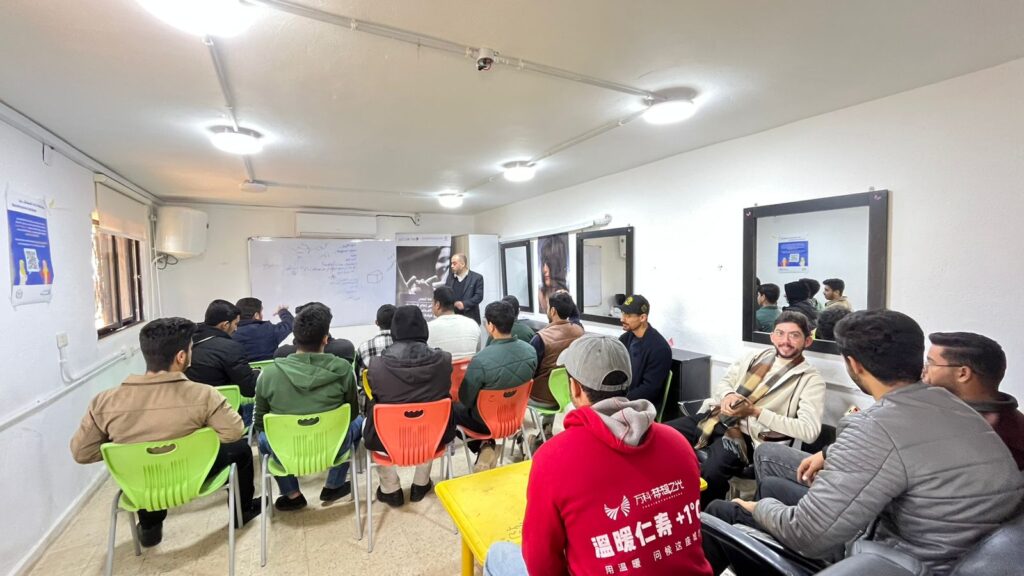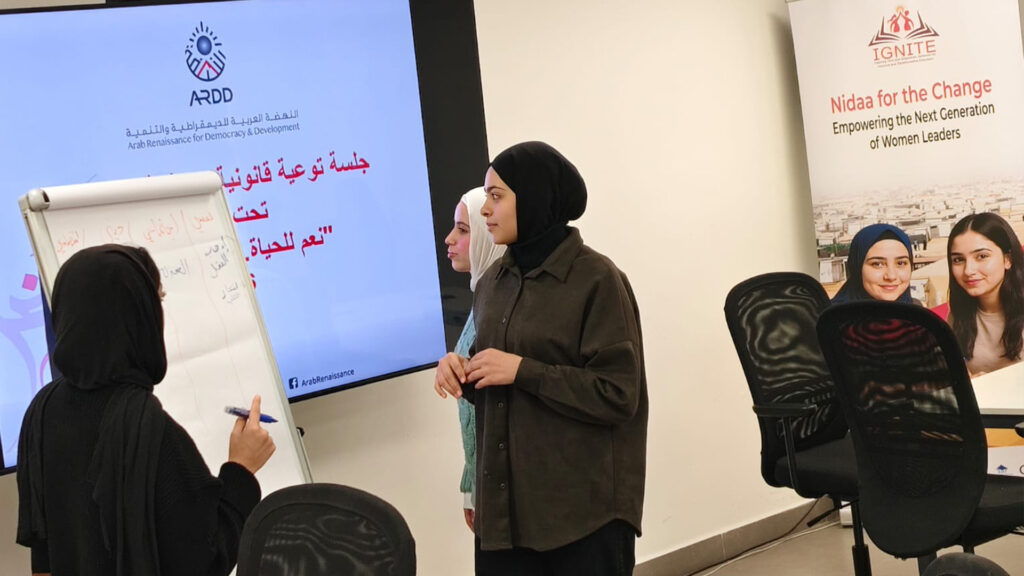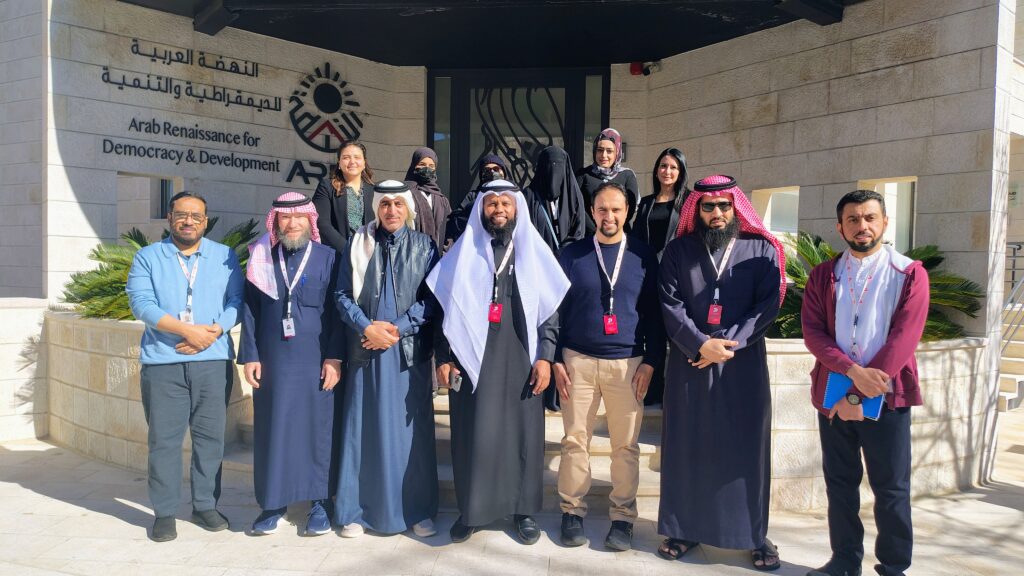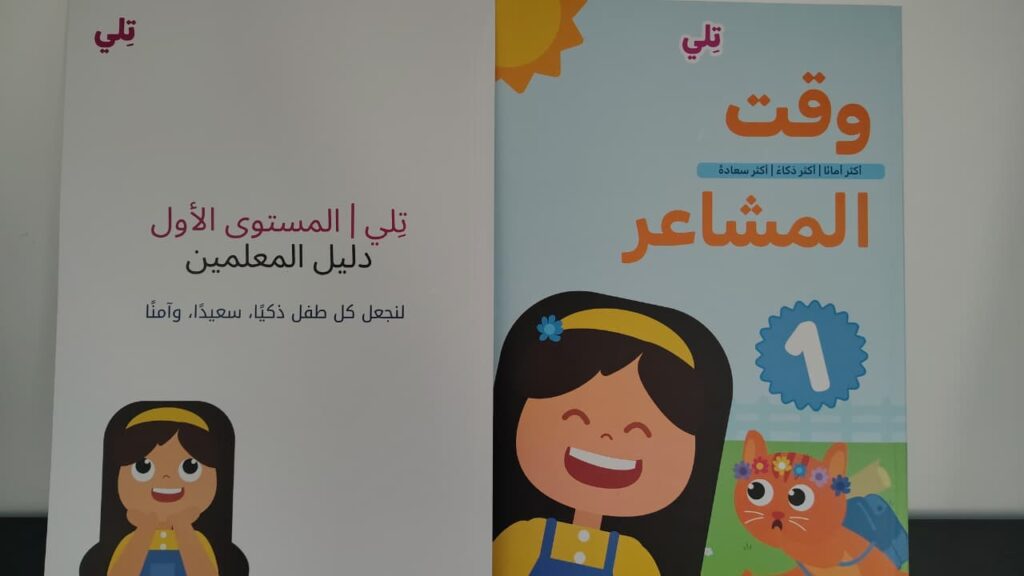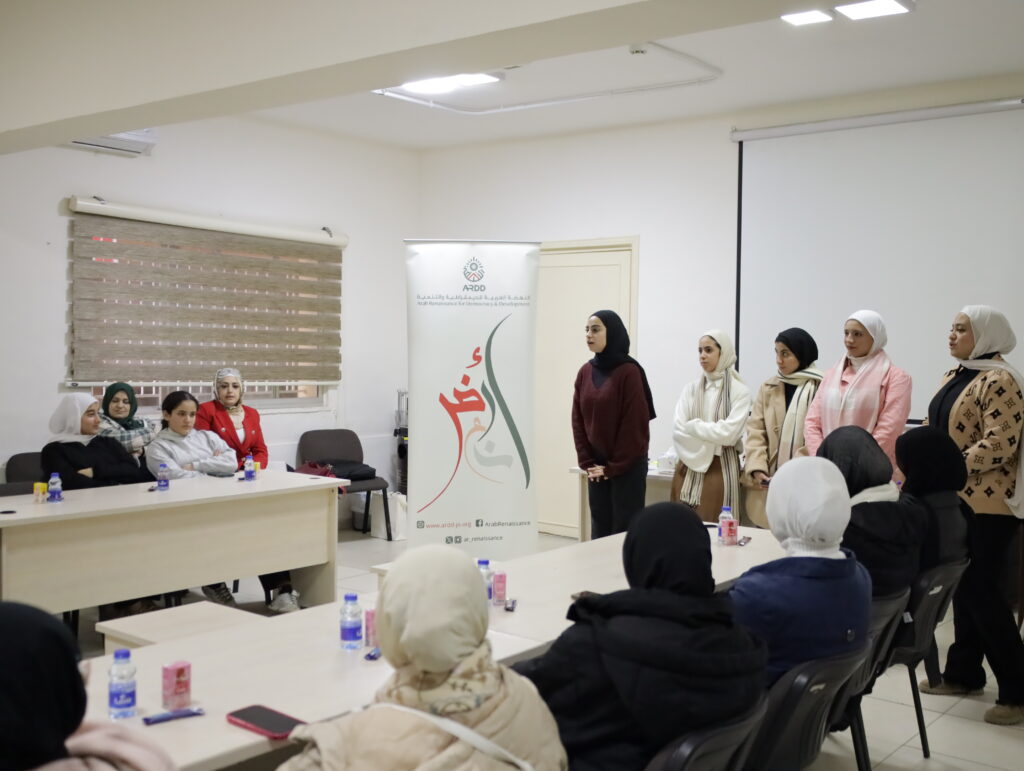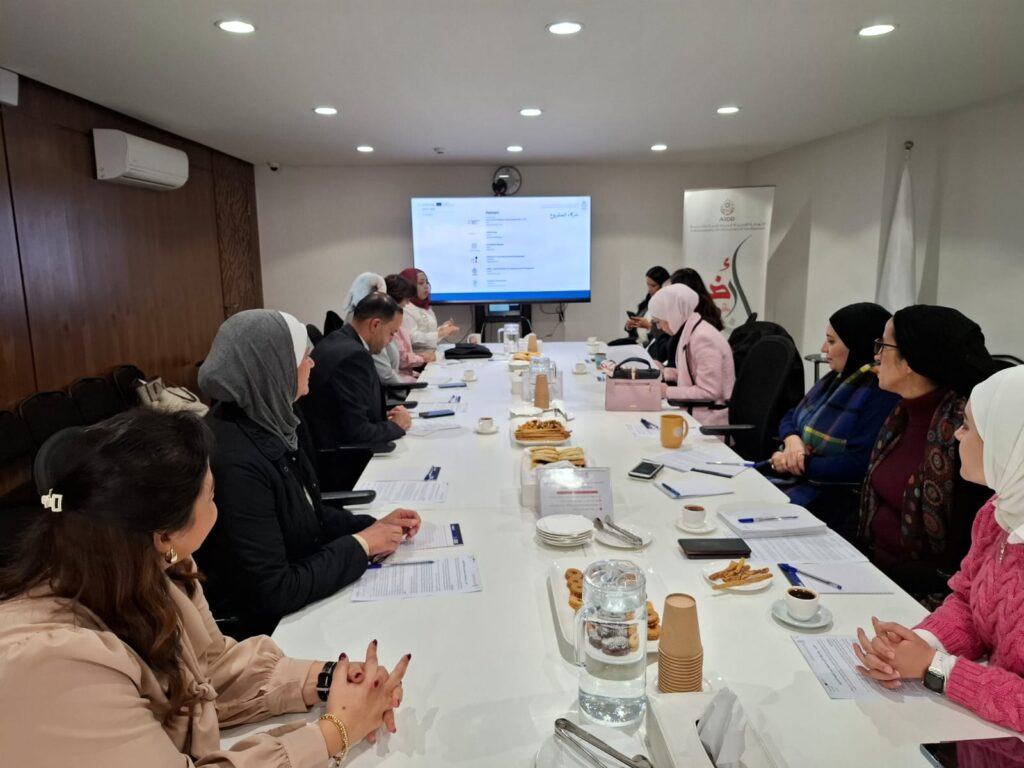As part of the activities marking the 77th anniversary of the Nakba, independent legal expert and associate member of the Centre for Palestine Studies at SOAS, Dr. Lena El-Malak, presented her timely new book Stolen Nation: The Right to Reparation of Palestinian Refugees. In it, she offers a legal analysis of the right to reparation under international law for the destruction and expropriation of Palestinian property during the Nakba. The event was attended by students, as well as several representatives of civil society and international organizations.
Dr. Mariam Abu Samra – political scientist and coordinator of the Renaissance Strategic Center – moderated the launch, introducing it as “our first event under the framework of the Nakba activities that we organize every year.” Acknowledging the brutality of the ongoing genocide, she stated that the “book is coming at a very, very important moment.” We are living in “this historical phase, where, on top of everything we are seeing, we are also witnessing the complete dismantlement of any kind of international framework and institution that was supposed to provide some kind of justice or protection for Palestinians and in this case, Palestinian refugees.”
As the daughter of Palestinian refugees and a Nakba survivor, Dr. Lena El-Malak wanted to revive the Palestinian refugee issue, noting that researchers, media and politicians rarely touch on this issue. She sees international law as a tool for advocacy and aims to show how reparations can deter states from engaging in forcible displacement. In researching this topic, she came to the understanding that the Nakba is not a closed historical event, but an ongoing process rooted in a complex system of domination.
Her book’s analysis of property laws dating back to the Ottoman Empire – including the Ottoman Land Code and the British Mandate – illustrates how Israel used the law to give a legal clout to the permanent expropriation of Palestinian refugee property. Laws such as the Absentee Property Law were used to dispossess Palestinian refugees but also Palestinian citizens of Israel by creating the fictitious legal status of “present absentees” – Palestinians considered legally absent whilst being physically present within the State of Israel. In asserting that the laws used resulted in the unlawful expropriation of Palestinian property, Dr. El-Malak calls for a rights-based approach in which Palestinian refugees can claim their rights of restitution and compensation, or both – since the rights are not mutually exclusive.
As Dr. Abu Samra noted, law – like any other framework – can serve as a tool of power and colonialism. Dr. El-Malak takes a decolonial perspective, arguing that law can and should be strategically used to fight for Palestine because “it’s a legal way to be strategic, powerful and efficient.” Yet, she emphasizes the need for new strategies. Recognizing that models like the Holocaust restitution movement are unlikely to succeed in this context, she proposes legal action against entities such as the JNF or Elbit Systems as more effective avenues. Despite the obstacles, she insists these efforts are worth pursuing, as sustained pressure on governments and corporations can yield results.
She concluded by stressing the need to view today’s events as part of a continuum that began over a 100 years ago with the colonization of Palestine. She said that “this is the ongoing Nakba and it is impossible to conceive of any permanent resolution of this struggle for liberation that wouldn’t address the root cause of it – the theft of a Nation”.

